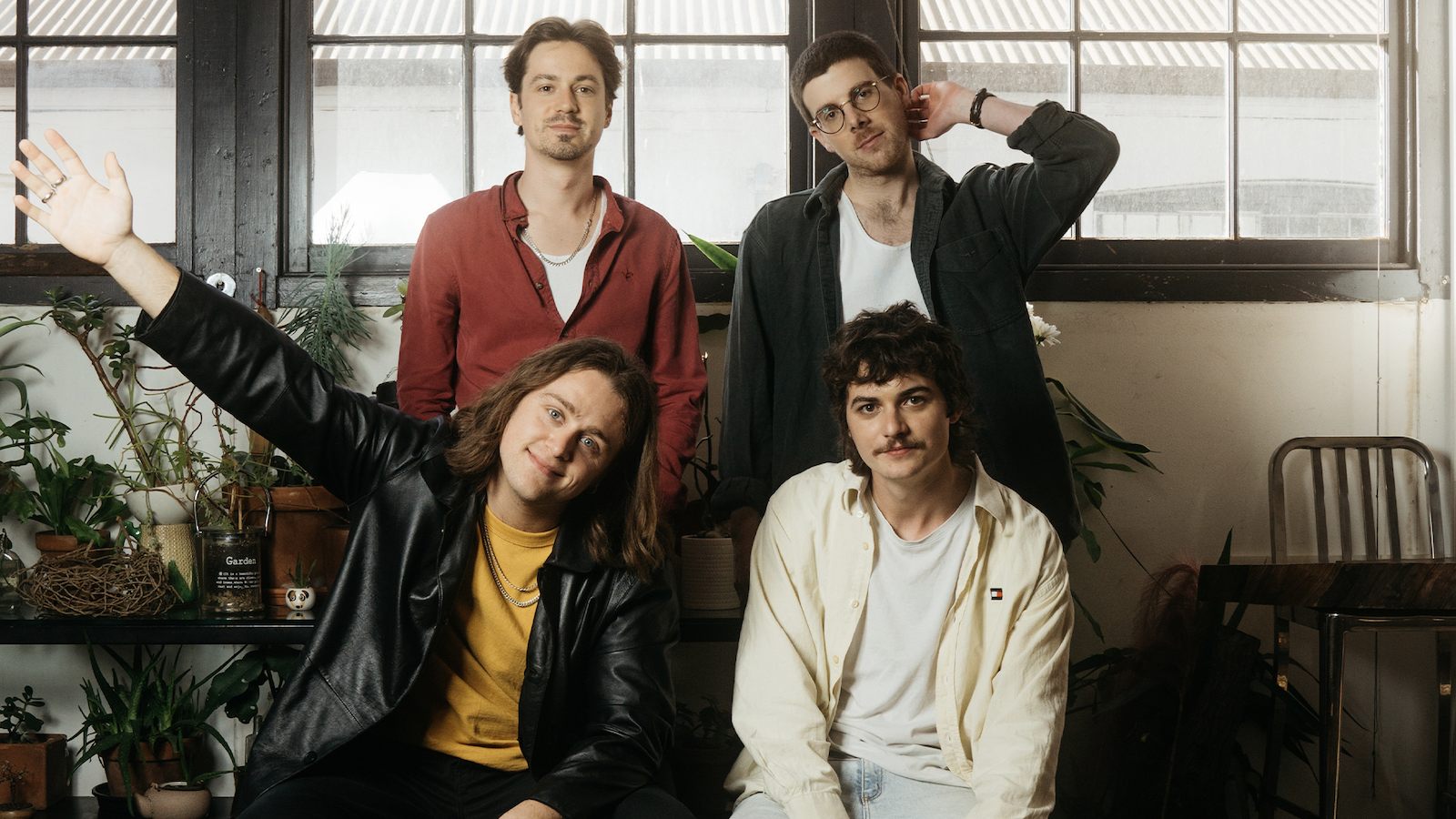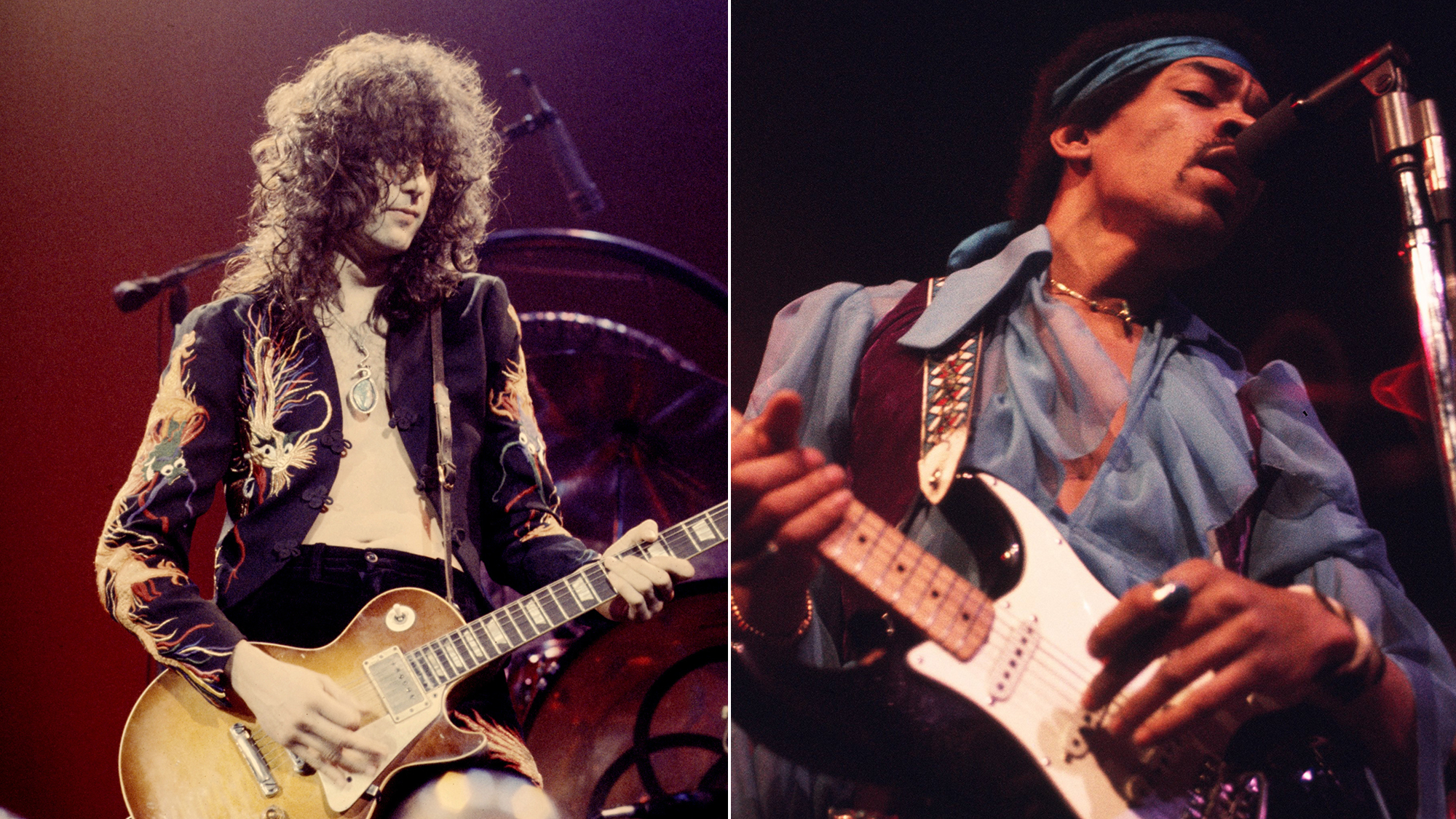Matty Took of PLANET: “We just tried different things out and had fun”
PLANET explain how they recorded their debut album as a clandestine operation, with a producer working remotely on the other side of the world

Chaos and confusion stumped PLANET’s plans in 2020, so the Sydney outfit bunkered down at home in the city’s inner‑west and wrote Information Overload, their debut full-length offering due out in March.
As standalone tracks, Information Overload has it all – without, no pun intended, overloading the listener. From the jagged pull of the acoustic guitar that breaks the can open in ‘Lost My Honesty’, to the depth of doubt that guides the narrative of ‘Ship Won’t Change’ – right the way over to a melancholic refrain as PLANET observe the state of modern life in ‘Resign’ – the band rolled with the punches and ended up with one hell of a prize. As the first chapter in what’s shaping up to be a truly illustrious career, Information Overload is a rich, warm, whiskey-soaked dream of a release, flooded with some carefully tended-to guitar work
Set to feature on the album are previously released songs ‘Ship Won’t Change’, ‘Resign’ and ‘Aching Dream’. These boast ‘90s Britpop-come-all-Aussie-indie vibes, static sonic power and a melancholic, yet melodic lull – all of which complement the uniquely euphoric songs that allow Information Overload to become something bigger than the sum of its parts.
What was it like making this record as a sort of clandestine, undercover operation?
It was a good vibe! At first it felt a bit sketchy, but my mate who works there was just like, “Yeah, just sign in like you’re a student and roll in.” That was when COVID first really hit, so no-one was actually coming into the studio at all. We had the whole room to ourselves, pretty much, with this massive SSL desk worth half a million dollars or something. And we just rolled in, did all our guitars and bass there, did all the grand piano there... And it was just such a nice room to be in. But yeah, we had to be sneaky about it. You can’t really be sneakily when you’re bringing in a 12-inch Music Man amp in a flight-case, but we got it done somehow!
So you were using all this incredible analogue equipment, tracking through real amps and all that – do you reckon that had a major impact on how the record sounds, as opposed to how you’d planned to record it?
Yeah, definitely. Most of it would have actually been recorded in this room. I’m in my home studio in Redfern at the moment – I have a pretty simple setup, but enough to make it sound cool. That studio was just like the ‘next step’ sort of thing, actually going through good, proper channels. It makes such a difference. And just being in the environment as well, it felt so easy. Sometimes when you go to studios, you’d be like, “Oh shit, what’s the time? How much is this costing?” But just sitting in that room, not really thinking about the clock too much, it was pretty refreshing. There was no-one going, “Oh, we have to rush this,” so we just tried different things out and had fun.
Were all the demos made in your home studio?
Yeah. Tom [Peppit, guitars] and I are like the main writers, but because of the restrictions around COVID, we couldn’t actually meet up. We had to send songs to each other over Google Drive, which was a first for us, because we’re normally always in the room together. But it worked out in a way, because we could do stuff in our own time and not really feel like, “Oh, maybe I won’t do this because we’re trying to write this song together.” Both of us could just do random stuff, and it sort of came together a bit better.
What was it like working with Adrian Bushby from half the world away, too?
Yeah, that was a strange one. It was just lots of Zooming and Google Driving. He’s one of those guys who would write all his notes down on a piece of paper – he doesn’t type much stuff at all. So we rolled in with all our little demos and be like, “Hey, we’ve got these notes for you,” and he was like, “Oh, yeah, I’ve got mine too.” We would copy and paste them in the chat, and then he’d just hold up a piece of paper [laughs]. It was a cool vibe – he’s just a really nice guy, a bit more old-school, and had lots of cool things to say. He helped us evolve a lot of our songs, which was cool. It’s really nice to have a second opinion from such a prolific sound engineer.
Get The Pick Newsletter
All the latest guitar news, interviews, lessons, reviews, deals and more, direct to your inbox!
Did the process feel as stinted as it sounds like it would be? To make Information Overload as intimate and interactive as it sounds, it feels like you’d have to really push through the limitations of technology.
Yeah, definitely, that was a tricky thing. It was a lot harder than if you just went, “Okay, I’m going to book a studio for three weeks, we’ll do it all here and smash it all out together.” It was a bit more finicky, definitely – mainly because we were recording it all ourselves. But having that control also made it a bit less stressful – like I was saying, not thinking about the time, just trying out random shit and not really giving a f*** about anything, it was a lot more fun and refreshing.
So what’s the creative dynamic like between you and Tom as guitarists?
It’s just us constantly sending ideas back and forth. Tom really loves just banging out these massive choruses in Logic. He sends me these 40-second clips that are just like, “Bam!” They’re straight-up in-your-face, which I love, and that’s how evolve from a small idea into a big chorus. Whereas I like to send voice memos of myself just acoustic guitar, with the whole song done already. I might chuck on a riff or a synth part on, but it’s normally pretty straightforward. I do it a bit more acoustically, he does a bit more electrically. But it definitely works, and it’s cool.
Especially these last two years, sending everything digitally, having our own spaces and being able to sit back and really think about [our parts], rather than have to be in the same room with each other and have to jam everything out in the same way. Even though I love doing it that way, it’s sort of refreshing, not having to bounce off each other. It’s a lot cooler, I feel, being in your own head – because writing a song can be such a personal thing.
“It was tour, tour, tour. I had this moment where I was like, ‘What do I even want out of music?’”: Yvette Young’s fretboard wizardry was a wake-up call for modern guitar playing – but with her latest pivot, she’s making music to help emo kids go to sleep
“There are people who think it makes a big difference to the sound. Stevie always sounded the same whether it was rosewood or maple”: Jimmie Vaughan says your fretboard choice doesn’t matter – and SRV is his proof







![John Mayer and Bob Weir [left] of Dead & Company photographed against a grey background. Mayer wears a blue overshirt and has his signature Silver Sky on his shoulder. Weir wears grey and a bolo tie.](https://cdn.mos.cms.futurecdn.net/C6niSAybzVCHoYcpJ8ZZgE.jpg)

![A black-and-white action shot of Sergeant Thunderhoof perform live: [from left] Mark Sayer, Dan Flitcroft, Jim Camp and Josh Gallop](https://cdn.mos.cms.futurecdn.net/am3UhJbsxAE239XRRZ8zC8.jpg)
